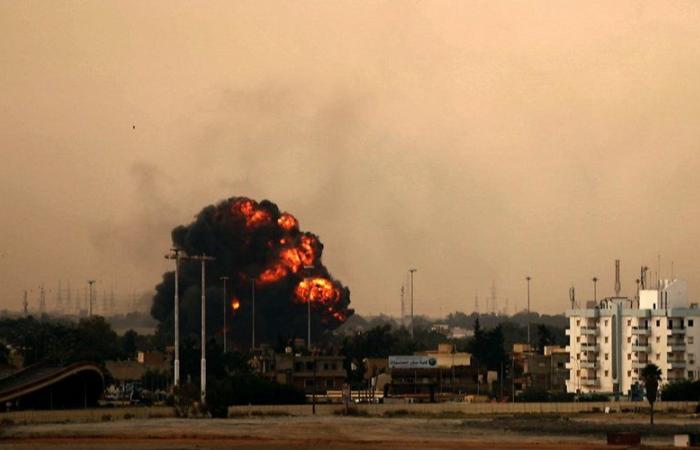
the essential
For more than 40 years, relations between France and Libya have been marked by a succession of crises, oil negotiations and signing of arms contracts. But the war which concluded Nicolas Sarkozy's five-year term destabilized the country for a long time and, well beyond, Paris's relations with the Maghreb, sub-Saharan Africa as well as relations between great powers and regional powers. The analysis of Didier Billion, deputy director of IRIS.
Certainly, the sulfurous relations between France and Libya predate the ambitions of Nicolas Sarkozy. From his coup d'état against King Idris I, in 1969, to his fall in 2011, Colonel Muammar Gaddafi was in fact a loyal client of French arms manufacturers as well as a recurring “problem” for Paris .
114 Mirages sold to Tripoli, missiles, military buildings, high-end surveillance and communication systems, among others… Despite the Franco-Libyan clashes in Chad and the attack against the UTA DC10 which killed 170 people on September 19, 1989, the “Guide” regularly purchased “normalizations” between crises. “More than two billion euros”: at the time of the Benghazi revolt, this was the amount of contracts discussed in previous months, recalled The Pointin February 2011.
Sarkozy's ambitions in the Mediterranean
But that's it… Beyond the link established by Nicolas Sarkozy and his close friends with Muammar Gaddafi, the war subsequently led by France and the United Kingdom will also have resulted in “an absolute geostrategic catastrophe”, summed up in The Dispatch the deputy director of the Institute of International and Strategic Relations Didier Billion.
AFP – ERIC FEFERBERG
At the start? The honeymoon was born out of intersecting interests. “Nicolas Sarkozy wanted to appear as a key player in the Maghreb and the Mediterranean” while Libya, classified as “terrorist”, wanted to re-enter the international game… “Sarkozy therefore thinks that France must take advantage of it”, recalls Didier Billion. No one will forget the welcome given by the French president to the Libyan leader in Paris and Versailles in 2007. But the Rafale contract project ends in the purchase of Russian planes and the Arab springs occur.
Blindly
Tunisia, Egypt, the revolt movements follow one another… “France was totally blind” continues the expert. “In Libya, Sarkozy does not want to miss the train.” Assessment? The fall and death of Gaddafi, which remained unclear, set in motion a mechanism for which the Libyans, France and international relations are still paying “the high price”.
The looting of arms stocks and the return to the country of Gaddafi's “orphan” Tuareg mercenaries initially played into the hands of Islamic terrorists. First consequence? “Fundamentally, it is the destabilization of the countries of the Sahel-Saharan strip. Mali, Burkina-Faso, Niger, Chad: France was finally ejected from its “pre-square” despite its commitment against the jihadists,” notes Didier Billion , also pointing out “the pull created by the migratory phenomena maintained by local mafias”, once the regional stabilization provided by Libya has disappeared.
The Turkish boomerang
Then on the rubble of the country… Here again, Nicolas Sarkozy – but also his successors – will score against their camp by supporting Marshal Haftar against the government of national unity recognized by the UN. Faced with this “non-respect of the institution” of the United Nations by Paris, it is in fact Erdogan's Turkey which will appear on the side of UN law and the Libyan government as part of its vast “offensive on the African continent”, marginalizing France.
Finally, and this is not a detail… In 2011, at the time of the vote on resolution 1973 pushed by Paris, London and Beirut with the support of Washington to “protect the civilian populations” revolting in Benghazi, “Russia had done shows a desire for openness and dialogue with Western powers, leading China to abstain, allowing the resolution to be approved. “But the military intervention was misguided, which accelerated Russian mistrust, embodied by Putin against the West…”
After Libya, the Kremlin swore that it would not be challenged again in the face of what it deemed to be Western “duplicity”. The rest played out in Syria as in Ukraine.





